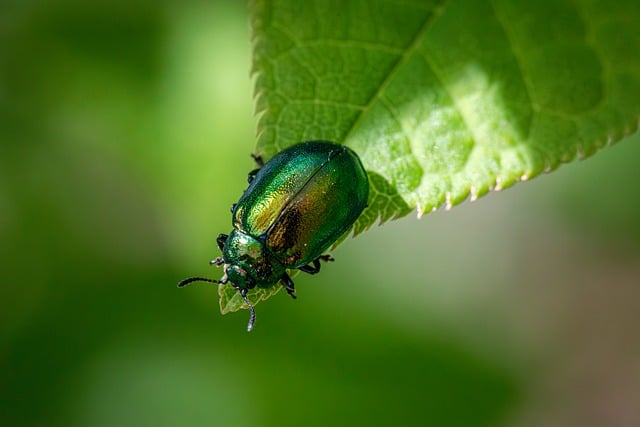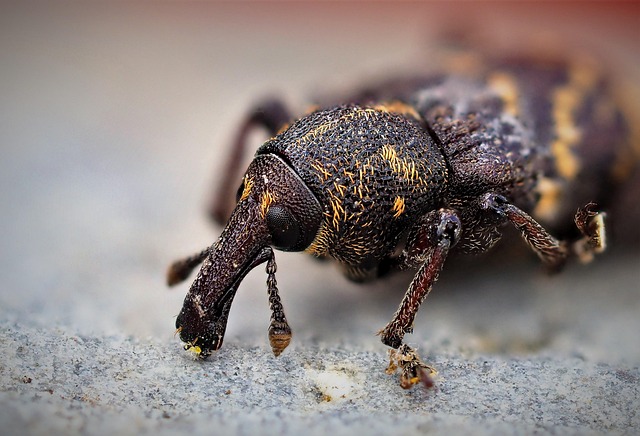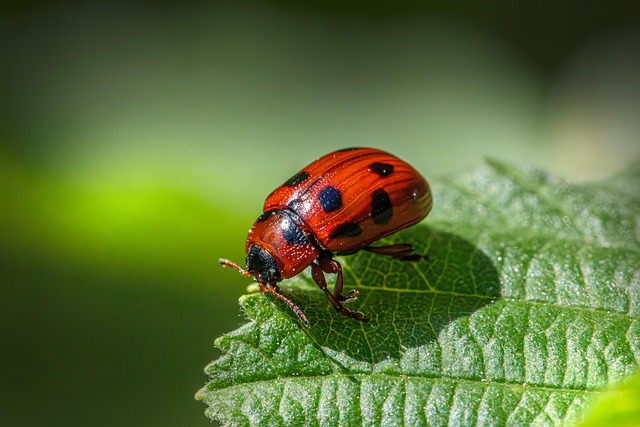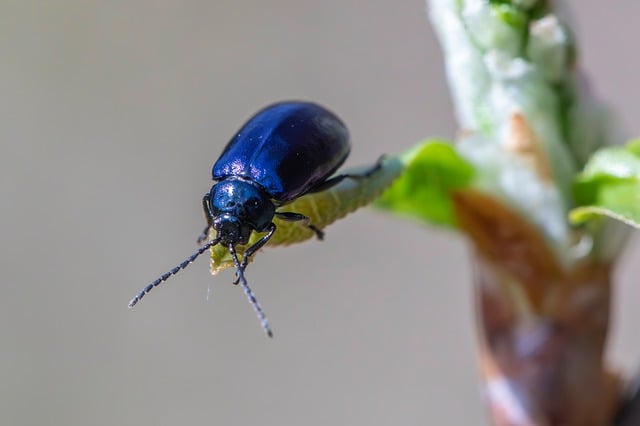Wasp nests, identifiable by their paper-like construction, are crucial organic pest controllers in Littleton home gardens, naturally combating caterpillars and aphids. Essential oils (citronella, peppermint, neem) mixed with water act as safe deterrents, while introducing parasitic wasps aids in biological control. Safety is paramount when dealing with nests; use natural repellents at night, wear protective gear, and seek professional help for large or inaccessible nests to maintain a balanced ecosystem.
In the bustling landscape of Littleton, maintaining a vibrant garden requires vigilance against unwanted visitors—wasps. These efficient predators can be beneficial for natural pest control but their nests pose a potential hazard. This guide explores how to identify wasp nests and highlights organic pest control methods tailored for home gardens in Littleton. We also provide safe removal techniques to ensure effective nest elimination while minimizing environmental impact.
- Identifying Wasp Nests and Their Benefits for Gardens
- Organic Pest Control Methods for Wasps in Home Gardens
- Safe Removal Techniques for Effective Wasp Nest Elimination
Identifying Wasp Nests and Their Benefits for Gardens

Wasp nests can often be overlooked, but identifying them is crucial for maintaining a healthy garden, especially when considering organic pest control for home gardens in Littleton. These nests, typically built above ground and attached to structures or trees, serve as vital habitats for wasp colonies. With a keen eye, you can spot their distinctive paper-like construction made from chewed wood pulp. They often resemble small, rounded masses or open-ended cylinders, hanging from branches or overhangs.
Recognizing wasp nests brings several benefits to your garden ecosystem. Wasps are natural predators of many common garden pests, such as caterpillars and aphids. By leaving nests intact, you encourage these beneficial insects to stay, helping to keep pest populations in check without the need for synthetic chemicals. This organic approach to pest control promotes a more sustainable and balanced garden environment.
Organic Pest Control Methods for Wasps in Home Gardens

In the quest for organic pest control for home gardens in Littleton, there are several safe and effective methods to manage wasp nests. One popular approach involves using essential oils like citronella, peppermint, and neem oil, which have natural insecticidal properties. Diluting these oils with water and spraying them around problem areas can deter wasps without harming beneficial insects or the environment.
Additionally, introducing parasitic wasps—natural predators of common garden pests—can help control wasp populations. These beneficial insects can be purchased from specialized suppliers and released in the garden to prey on the nests and larvae of common garden pests, including wasps. This biological control method promotes a balanced ecosystem while keeping wasp numbers under control in Littleton home gardens.
Safe Removal Techniques for Effective Wasp Nest Elimination

When it comes to wasp nest removal, safety is paramount. Traditional methods often involve toxic pesticides that can be harmful to both humans and beneficial insects. An eco-friendly approach, however, is to opt for organic pest control for home gardens in Littleton. This involves using natural repellents like essential oils (e.g., citronella or peppermint) or insecticidal soap, which are less aggressive and more sustainable.
For effective wasp nest elimination, timing is crucial. Wait until evening when wasps are less active, then wear protective gear including gloves, long sleeves, and pants. Use a stick to dislodge the nest from its perch and place it in a sturdy container with a tight-fitting lid. After removal, clean the area thoroughly to prevent reoccupation. Remember, professional assistance is recommended if the nest is large or located in hard-to-reach areas for safety reasons.
Wasp nests can pose a significant threat, but with organic pest control methods tailored for home gardens in Littleton, residents can effectively manage these situations safely and responsibly. By identifying nests early and employing targeted removal techniques, you not only protect your property but also contribute to the local ecosystem’s balance. Remember, prevention is key, so regular inspections and maintenance can significantly reduce wasp presence. For any nest removal, ensure professional equipment and knowledge for a secure and swift resolution.
